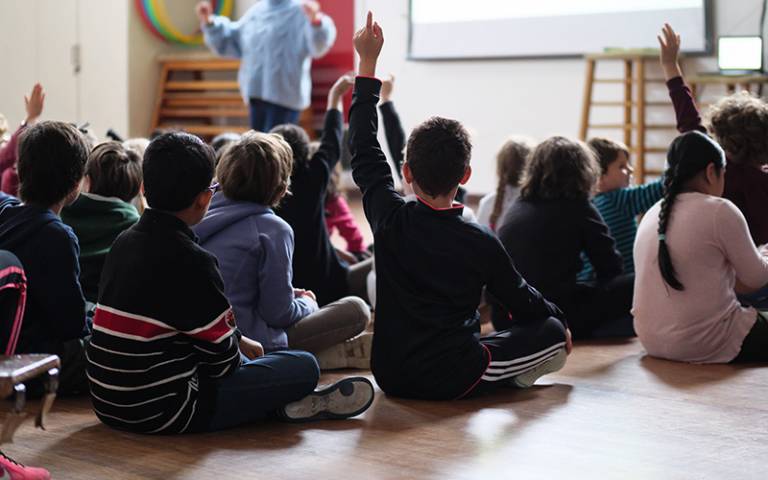New birth cohort study will study children of the 2020s
10 May 2021
A new nationally representative birth cohort study launching in England this year will deliver valuable insights into child development, led by UCL researchers and commissioned and funded by the Department for Education.

The Children of the 2020s Study will include babies born in September, October, and November 2021. The research team from UCL, Ipsos MORI, the University of Oxford, Birkbeck, University of London and the Anna Freud Centre will seek to recruit over 8,000 families in early 2022 to take part in the study.
Lead researcher Professor Pasco Fearon (UCL Psychology & Language Sciences and Anna Freud Centre) said: “Our study will provide vital evidence about the experiences of young children and their families growing up in the 2020s – a time of extraordinary social and technological change, and of course as the world begins to recover from the COVID-19 pandemic.
“This will be an in-depth study of the wide range of factors that affect children’s development and education in the early years, including the home environment, nurseries and preschool, the neighbourhood, early years services and the broader social and economic circumstances of the family. We want to understand how these factors impact children’s social, cognitive, and early language development, their mental health and readiness for school.”
Co-investigator Professor Alissa Goodman (Director of the Centre for Longitudinal Studies at UCL Institute of Education) said: “The early years represent an exceptional period in a person’s life, with rapid brain growth and the establishment of abilities that are key to later success. When children thrive in the first five years of life, their capacity to benefit from formal education – and thus their long-term trajectories and life chances – are greatly enhanced, so it’s vital that we understand how best to support children in their early years.”
The study has been funded for five years, to enable the researchers to answer important scientific and policy questions regarding the determinants of early school success. The research team also hopes to continue following the study participants for many further years to come through administrative data, and subject to funding, potentially through further waves of primary data collection, similar to other studies with life-long participants that are also based at the study’s home, the Centre for Longitudinal Studies at UCL.
Families will be interviewed when the child is nine months old, and then annually. The data collection will also be enhanced through the use of a special smartphone app to record video and audio of children’s progress over time and obtain a picture of how families manage the ups and downs of daily life.
Part of the study will be to investigate the home learning environment as children grow up, including the use of digital technologies and learning apps which were already becoming more common even before the COVID-19 lockdowns accelerated moves to remote learning.
The researchers intend their findings to be useful for policy makers, academics, and for families, and will incorporate ongoing public consultation to plan how the study progresses.
Children and Families Minister Vicky Ford said: “We all recognise the important role of high-quality childcare and early education in giving children the best start in life so they arrive at school ready to learn, make friends and improve their social and emotional skills.
“We have provided over £3.5 billion in each of the past three years for early education entitlements and we continue to support families with their childcare costs. We are also investing over £14 million to champion Family Hubs and are encouraging councils to make sure that parents and carers have a clear Start for Life offer, helping them access the crucial early education and health services they need.
“Children of the 2020s is an important study that will add to our understanding of how to support early development and increase the vital evidence base.”
In delivering this new study for the Department of Education, UCL adds to its strengths as a world leader in long-term cohort studies. The university already hosts the Millennium Cohort Study, Whitehall II, the 1958 National Child Development Study, and the 1946 British birth cohort study, among others, which have been following tens of thousands of study participants across decades, providing valuable evidence that plays a key role in shaping the world we live in today.
Media contact
Chris Lane, UCL Media Relations
T: +44 (0)20 7679 9222 / +44 (0)7717 728 648
E: chris.lane@ucl.ac.uk
Links
Image
Image: Phil Meech for UCL Institute of Education
 Close
Close

